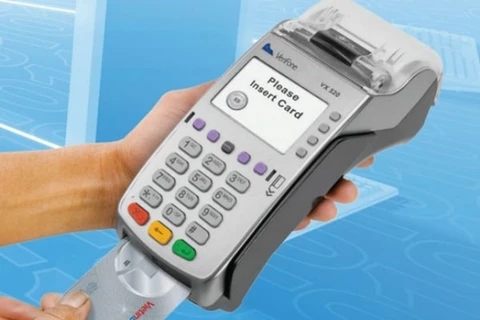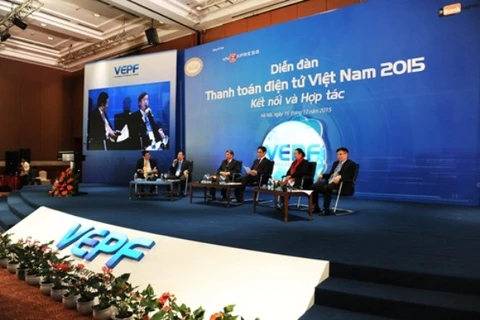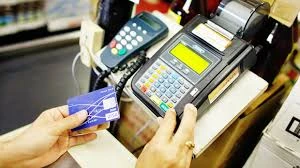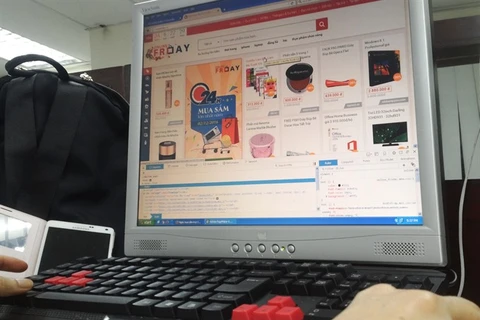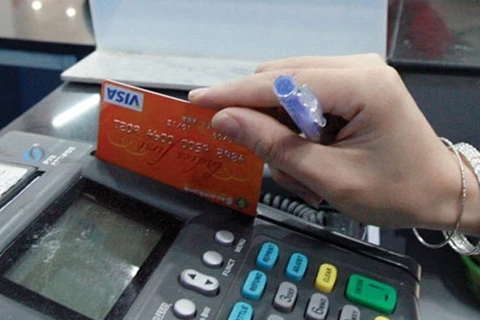Hanoi (VNA) - Deputy Prime Minister Vuong Dinh Hue has signed a policy decision encouraging cash-free transactions in Vietnam in order to reduce the number of cash-based deals, improve overall electronic payment methods and control tax evasion.
Under the plan, by 2020, total cash transactions will be less than 10 percent of total market transactions; all supermarkets, shopping malls and distributors will accept credit cards; 70 percent of water, electronics and telecommunication service providers will accept cash-free payments from households and individuals, and 50 percent of total urban households will use electronic payment methods for daily transactions.
The policy also proposes the development of new payment methods for rural and remote areas in order to encourage financial inclusion and increase overall access to transaction services, so that at least 70 percent of Vietnamese over the age of 15 will have bank accounts by the end of 2020. Social welfare and pensions will also be paid through electronic payment methods.
Cashless payment is an inevitable step, said Le Xuan Nghia, a member of the National Advisory Council on Finance and Monetary Policy. The move will save both time and cost to the nation, as well as to businesses and individuals.
Nghia advised implementing the policy in the very near future. The few remaining challenges include online security for customers at commercial banks and the need for an automatic payment centre to be established by the State Bank of Vietnam (SBV) to connect between paying customers and businesses or commercial banks. He believes this could be achieved in three to four years, noting that neighbouring countries like Singapore, Malaysia and Thailand have long had such centres.
The electronic commercial payment system will connect bank payment infrastructure with retail and business to complete a national payment network, as well as to governmental financial agencies, such as the SBV, the General Department of Customs and the General Department of Taxation.
The Government will conduct research and devise various procedures and policies to boost electronic transaction in taxation and online commerce.
The shift to electronic payments and commerce will also enable transparency, prevent tax evasion and improve documentation for both individuals and organisations.
Point of sale systems and automatic teller machines will be established and improved for retail purposes, and will expand to health care facilities, public transportation and the education sector. Use of multi-purpose magnetic cards will also be encouraged. This will apply to daily transactions, as well as purchases of real estates and properties of high value, such as vehicles.
In order to encourage individuals as well as organisations to start cash-free transactions, fees on cash payments could be increased while those on electronic payment for credit organisations and commercial banks could be reduced.
However, Nghia also suggested that several groups would not benefit from electronic payments, such as payment collectors and those with low incomes.
The policy is expected to change the payment habits of Vietnamese and create opportunities for startups in the electronic payment area. Many businesses specialising in online payments, such as MoMo mobile payment, eMonkey, Payoo, VTC Pay or BankPlus, will be increasingly accessible and familiar to people.-VNA
VNA

